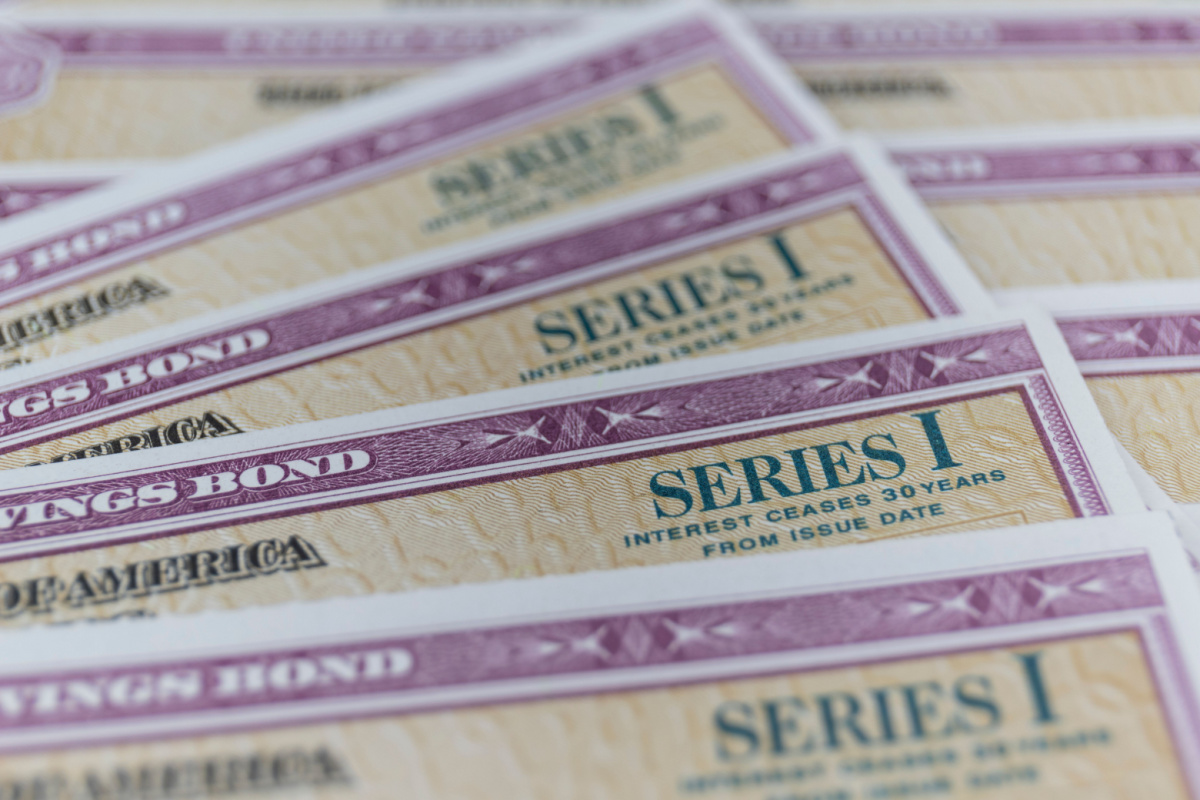How to Save Money During Times of Inflation
Are you feeling the pinch of inflation in your wallet? You’re not alone. The inflation rate in the U.S. is nearing 5%, making it harder to afford necessities when the value of the dollar has less buying power.
Inflation signifies economic decline and can be challenging to navigate, especially when managing your finances. Here is a guide on how to save money during inflation, providing strategies to help you protect your money during these economic uncertainties. So, buckle up and prepare to save money during the inflation period!
What Is Inflation?
Inflation is the rate at which the prices for goods and services rise and the purchasing power of currency decreases. It can be caused by various factors, such as an increase in demand for goods or services, a decrease in supply, or changes in government policies. Due to recent global events, inflation in the U.S. hit 9.1% in July 2022 – the highest in 40 years.
Regardless of the cause, the effects of inflation can be felt throughout the economy, from the rising prices of everyday goods or services to interest rates. Also, decreased purchasing power can lead to lower living standards and slower economic growth.
Amid an inflationary climate, individuals may find it challenging to strategize their future planning, facing uncertainties due to fluctuating prices and varying economic demands. Additionally, inflation can hurt those on a fixed income, as their income may not keep up with the rising cost of living.
While the government takes steps to manage inflation, it’s primarily up to you to safeguard your finances in times of rising prices. Discover how to save money during inflation with these actionable tips and strategies.
5 Tips to Protect Your Money During High Inflation
Protecting your money during periods of inflation helps safeguard your purchasing power and financial security from the negative effects of rising prices. Being proactive about saving can help ensure that your hard-earned money does not lose value over time due to inflation. In other words, saving money during times of inflation can help you maintain the same level of financial stability and security as before.
That said, here are five tips on how to save money during inflation:
Invest in Inflation-Protected Securities
To weather the storm of rising prices, one of the most powerful tools at your disposal is investing in principal value inflation-protected securities (IPS). These are government-issued bonds that adjust with inflation. They’re designed to shield your investment from the corrosive effects of rising prices. The U.S. Treasury offers one common form of IPS known as Treasury Inflation-Protected Securities (TIPS).
 TIPS are U.S. government-issued bonds that are designed to keep pace with inflation. But how do they work? TIPS are unique because their principal, or the initial investment you make, adjusts with inflation as measured by the Consumer Price Index (CPI). This means if inflation rises, so does the value of your TIPS investment, thus shielding your money from inflation's negative effects.
TIPS are U.S. government-issued bonds that are designed to keep pace with inflation. But how do they work? TIPS are unique because their principal, or the initial investment you make, adjusts with inflation as measured by the Consumer Price Index (CPI). This means if inflation rises, so does the value of your TIPS investment, thus shielding your money from inflation's negative effects.
Here's a simple breakdown:
- Purchase: When investing in a TIPS, you buy a government bond with a face value, such as $1,000. It comes with a stated interest rate, also known as a "coupon rate."
- Inflation Adjustment: The principal of the TIPS is adjusted based on changes in the CPI. If inflation occurs (the CPI increases), the principal value of the TIPS increases. If deflation occurs (the CPI decreases), the principal value of the TIPS decreases.
- Interest Payments: Interest on TIPS is paid semi-annually. The interest payments are calculated based on the adjusted principal – so if inflation has occurred and the principal has increased, the interest payment would be greater.
- Maturity: TIPS are available for five, 10, and 30 years. When the TIPS matures, the investor is paid the greater of the adjusted or the original principal. So, if inflation has occurred, the investor would receive the inflated principal. If deflation occurs but is not enough to reduce the principal below the original amount, the investor still receives the original principal amount.
Start a High-Yield Savings Account
Opening a high-yield savings account is another effective strategy to consider. High-yield savings accounts are essentially savings accounts that offer significantly higher interest rates compared to their traditional counterparts. This difference can be substantial. The national average interest rate for savings accounts as of May 2023 stood at a mere 0.06%. In contrast, high-yield savings accounts offer rates of 1.5% or even higher.
Higher interest rates mean your money grows faster, helping to outpace inflation and retain the purchasing power of your hard-earned dollars. You’ll be able to see your savings balloon over time rather than lose ground to the rising cost of goods and services.
Many of these high-yield accounts are available through online and traditional brick-and-mortar banks. Remember to consider the bank’s reputation, the ease of access to your money, and any potential fees when choosing a bank and opening a high-yield account.
Open a Money Market Account
Inflation-proofing your finances requires a mix of strategies. One potent weapon to add is a money market account – a hybrid between savings and checking accounts. It offers higher interest rates with the flexibility of check-writing and debit card access.
Here’s an illustration: imagine you have a sum of $10,000. With a traditional savings account offering 0.06% interest, you’d earn just $6 in a year. With a money market account offering 1.5%, that figure leaps to $150.
 The key advantage here is twofold: you are earning a higher return and keeping pace with inflation, preserving the purchasing power of your savings. However, remember that money market accounts often require higher minimum balances to avoid fees. Moreover, they come with transaction limits, which you need to take into account when planning your finances.
The key advantage here is twofold: you are earning a higher return and keeping pace with inflation, preserving the purchasing power of your savings. However, remember that money market accounts often require higher minimum balances to avoid fees. Moreover, they come with transaction limits, which you need to take into account when planning your finances.
Purchase Bonds
Broadening your investment portfolio to include bonds and certificates of deposit (CD) can be another valuable approach when navigating an inflationary period. They are often viewed as safer investments than stocks, providing a predictable stream of income and a guaranteed return of principal at maturity.
There are several types of bonds, each with its own features and benefits:
Treasury Bonds (T-Bonds)
T-bonds are long-term investments issued by the U.S. government. They're essentially a loan you make to the government, and in return, they promise to pay you back with interest. T-bonds have two key components: the principal and the interest. The principal, or face value, is the amount you'll receive when the bond matures. The interest is the money you earn every six months, a fixed rate set when you purchase the bond.
Why could they be good recession savings tactics during inflation? T-bonds offer fixed interest payments every six months until maturity, which is typically 30 years. This steady income stream can be especially appealing during inflationary periods when the value of money is declining. In other words, you'll continue to receive the same interest even as the cost of goods and services rises.
One major benefit of T-bonds is their safety. They're backed by the full faith and credit of the U.S. government, meaning the risk of default is incredibly low. Plus, they offer a predictable, steady income stream, which can provide stability amidst the uncertainty of inflation.
Inflation-Indexed Bonds (I-Bonds)
I-Bonds are a type of U.S. government bond specifically designed to protect against inflation. I-Bonds have a term of 30 years, and while you can cash them out after 12 months, doing so before five years would result in a penalty.
 Here's why they could be a good option during inflation: the interest rate on I-Bonds has two parts. The first is a fixed rate that stays the same for the life of the bond. The second is a variable rate that adjusts every six months based on inflation. This means that if inflation increases, so does the interest you earn on your I-Bonds.
Here's why they could be a good option during inflation: the interest rate on I-Bonds has two parts. The first is a fixed rate that stays the same for the life of the bond. The second is a variable rate that adjusts every six months based on inflation. This means that if inflation increases, so does the interest you earn on your I-Bonds.
One of the benefits of I-Bonds is their safety. Like all U.S. Treasury securities, they are backed by the full faith and credit of the U.S. government. Additionally, their inflation-adjusted interest means you're protected against the erosion of your purchasing power during inflationary periods.
Corporate Bonds
Like T-bonds, corporate bonds are loans that investors make to companies. In exchange for your money, the company promises to pay you a fixed interest rate over a specified period and then return your initial investment when the bond matures. During times of high inflation, corporate bonds often offer higher interest rates than government bonds, which could help offset the rising costs associated with inflation. Second, some corporate bonds are linked to inflation rates, meaning their interest payments rise with inflation. Corporate bonds can provide regular income through interest payments, typically paid semi-annually until the bond reaches its maturity date, ranging from one to thirty years.
Invest in a Certificate of Deposit
In contemplating how to deal with inflation, one might consider Certificates of Deposit (CDs). A CD is a type of time deposit that offers a fixed interest rate over a specific period or term. When you invest in a CD, you agree to leave your money in the bank for a set period, ranging from a few months to several years.
CDs can be a reasonable choice during high inflation because they typically offer higher interest rates than regular savings accounts. This means the return on your investment may outpace the rising costs of goods and services, preserving the purchasing power of your money.
One of the primary benefits of CDs is their predictability. The interest rate is set when you open the CD and doesn't change for the term. This allows you to know exactly what your return will be. Plus, CDs are insured by the FDIC up to $250,000, adding an extra layer of security.
Keep in mind that if you withdraw your money before the term ends, you'll likely pay a penalty. Also, if interest rates rise above your fixed rate, you could lose out on potential earnings.
Buy Precious Metals
The last potentially rewarding strategy to hedge against inflation involves investing in precious metals. Gold, silver, and platinum have a reputation as safe havens during volatile economic times. They tend to gain value when the dollar loses purchasing power due to inflation.
For instance, during the 2008 recession, gold prices shot up 50% in nine months. And the upward trend didn’t stop – as of 2023, gold prices hit an all-time high.
Investing in precious metals can take several forms, but these are the most common products:
Bars and Coins
Precious metals like gold, silver, platinum, and palladium often hold or even increase their value as costs rise, making them a potential hedge against inflation. There's a broad range of gold coins and bars available, offering versatility to investors. For instance, you could choose to invest in bullion coins – these are minted by governments, and their value is primarily based on the weight and purity of the metal. Popular choices include American Gold Eagles, Canadian Maple Leafs, and South African Krugerrands.

For those seeking larger investments, bars may be an attractive option. These come in sizes ranging from a few grams to several kilograms, making it easier to tailor your investment to your budget. One of the primary benefits of investing in precious metal coins and bars is direct ownership. This tangible aspect can give a sense of security, as the value of the investment is based on the gold content. However, bear in mind that this does mean you'll need to consider secure storage and insurance to protect your investment.
Exchange-Traded Funds (ETFs)
Precious metal Exchange-Traded Funds (ETFs) allow you to invest in metals like gold, silver, platinum, and palladium without actually owning the physical metals. Think of ETFs as baskets of investments that you can buy and sell shares of, just like individual stocks.
One major benefit of investing in precious metal ETFs is the ease of access. You can invest without needing to physically store or insure any precious metals. Moreover, ETFs offer immediate liquidity, meaning you can buy or sell your shares at any time during market hours, just like any other publicly-traded security. They also provide diversification, as they may include a variety of precious metals and related assets, reducing the risk compared to investing in a single metal.
Precious Metal Individual Retirement Account (IRA)
A precious metal IRA is a self-directed retirement account that allows you to invest in physical precious metals, such as gold, silver, platinum, or palladium. One key advantage of a precious metals IRA is that it combines the inflation-protective benefits of precious metals with the tax advantages of an IRA. This means that your investment grows tax-deferred or tax-free. Plus, you have direct ownership of physical precious metals, which can give some investors peace of mind. Keep in mind a precious metals IRA requires a secure storage solution, typically through an approved depository, and not all types of precious metals are eligible for inclusion.
Mining Stocks and Funds
Investing in precious metal mining stocks means buying shares in companies that explore for, extract, and process precious metals like gold, silver, platinum, and palladium. During times of high inflation, this can be a smart investment strategy. One major benefit of investing in mining stocks is that they offer a degree of leverage. If metal prices rise, mining companies may see their earnings increase at a higher rate, potentially leading to significant returns for investors. Additionally, unlike physical metals, stocks can provide income through dividends.
Sum Up
In the era of growing inflation, safeguarding your financial assets has never been more of a priority. The strategies we’ve discussed throughout this guide offer practical means to protect or even grow your wealth in the face of inflation.
By exploring options such as investing in inflation-protected securities, opening high-yield or money market accounts, and diversifying into bonds, CDs, and precious metals, you can build a robust defense against the corrosive effects of inflation.
Disclaimer: The content in this article is meant to be purely informational and should not be taken as financial advice. It’s always a good idea to consult an advisor before making any financial decisions





